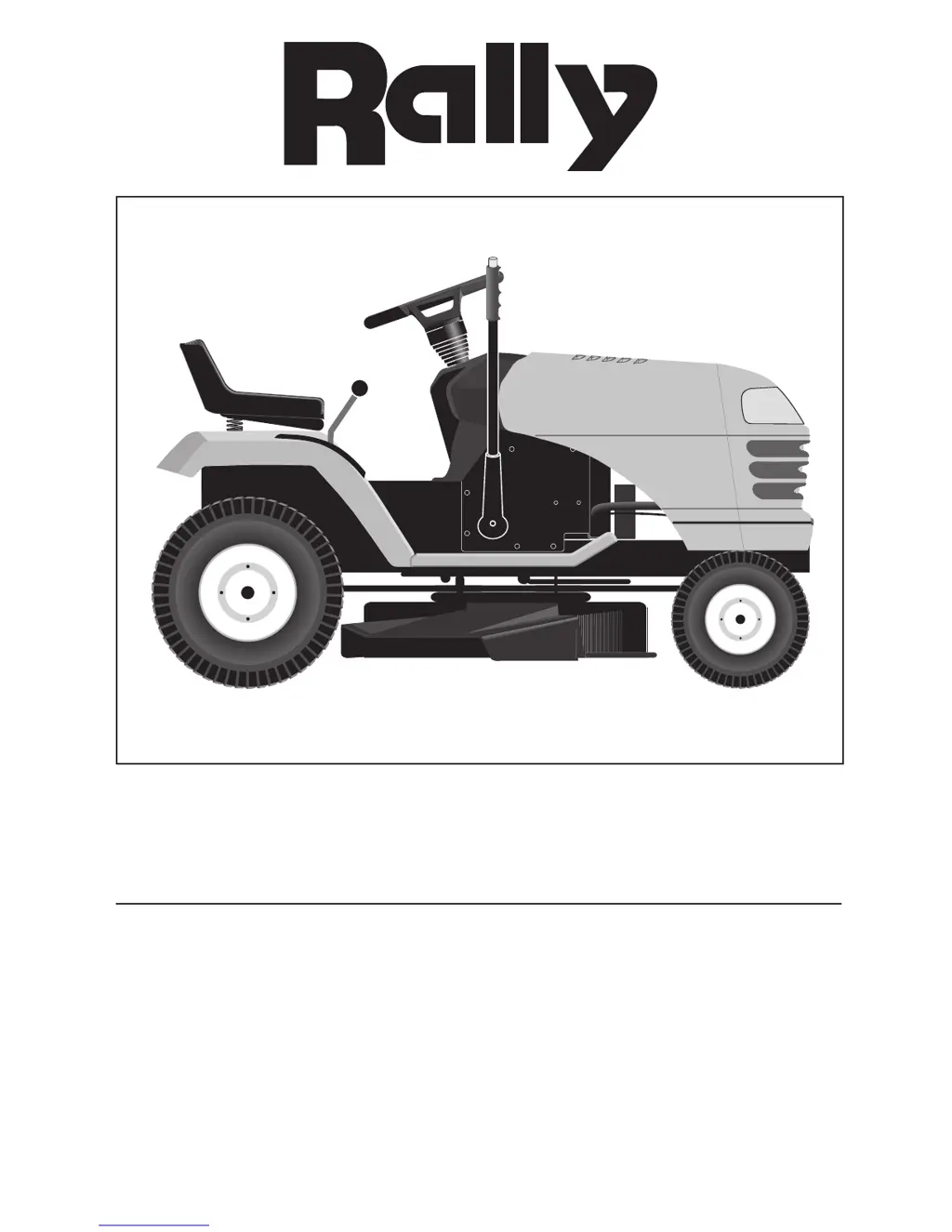How to fix a Rally Lawn Mower that will not start?
- NNicholas ChavezAug 20, 2025
If your Rally Lawn Mower won't start, several factors could be the cause. Ensure the fuel tank is full. If the engine is flooded, wait a few minutes before trying again. A bad spark plug, dirty air filter, or dirty fuel filter can also prevent starting, so replace them if necessary. Water in the fuel can also be a culprit; in this case, empty the fuel tank and carburetor, refill with fresh gasoline, and replace the fuel filter. Also, check all wiring for any loose or damaged connections. If the engine is not choked properly, refer to the “TO START ENGINE” section in the Operation section. For carburetor or engine valve adjustments, it is best to seek assistance from an authorized service center/department.
